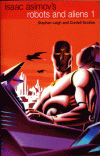My wife was surprised that I had never read Brave New World. It seemed to her that this novel by Aldous Huxley was generally considered required reading in school. She ordered it for me along with 1984 by George Orwell, which by coincidence I haven’t read either. It seems that I somehow went to the wrong schools as a kid, and missed out on some classics. I’m trying to remedy this.
I wouldn’t really call Brave New World a sci-fi novel. It’s more of a criticism of utopian society. The setting is in London around 2540 AD, where society is broken down into castes. Human reproduction is done in a “hatchery” where babies are created in bottles and subjected to varying conditions in order to guide development into one of the five classes (Alpha, Beta, Gamma, Delta, Epsilon). Aside from modifying biological factors, each child is “trained” with techniques ranging from aversion therapy to repeating phrases over and over when they sleep.
Each child is trained to love the position they have in society, whether it be a high ranking Alpha, or an Epsilon doing grunt work. The whole rationalization Huxley gives for this type of conditioning actually seems to make sense. He argues that you cannot have a society filled with Alphas, (everyone equal), because SOMEONE has to do the grunt work and will resent it. If you can train or brainwash someone into loving their grunt work job, i.e. janitorial, there will be no complaints.
Two of the more important parts of Alpha life are “free love” and the use of Soma, a mood enhancing drug with no side effects. Sleeping around is considered healthy, and monogamy is unheard of. Lenina Crowne, a Beta-Minus worker at the hatchery, has been harassed over going with one man for too long. Bernard Marx is an Alpha Plus that seems to idolize Lenia, and is offended when other men talk about whether or not they’ve had sex with her or not, or how many times. He’s also a social outcast because he wants to stand out and chooses not to use Soma when he’s in a bad mood. Lenina eventually accepts Bernard’s invitation to visit a “Reservation” in an attempt to keep her friends from thinking she is too attached.
This reservation is a place where humans are allowed to breed naturally, and are referred to as “Savages.” During this visit Lenina and Bernard come across a woman from London named Linda who became stranded at the reservation. Bernard takes it upon himself to rescue Linda and her son John, conceived in London and born inside the reservation, by taking them to London to “civilized” life.
This of course spawns a number of problems. Linda has no desire to re-integrate into society and goes on a non-stop “Soma holiday.” John is overwhelmed by the attention of everyone that wants to see or be around “The Savage.” Bernard is thrust into the spotlight by mere association with The Savage. Those are just a few for a short list of examples.
The ending is nothing short of bizarre. I’m not quite sure how I feel about it, but it’s safe to say I don’t think many people would expect it. Overall, this was an interesting book, but I don’t feel any special need to read it again. I found one piece of technology in the book rather interesting. There this type of entertainment called a “feely” that is essentially a movie but with a booths where senses other than sight or sound are transmitted directly into the brain. This reminded me of a section I read in The Age of Spiritual Machines by Ray Kurzweil describing the eventual development of similar technology. I wonder if he was influenced by Huxley at all.


Weird…we went to the same high school and I read 1984 in school. Did you read Animal Farm?
Yes, we read Animal Farm. It seems like my teachers wanted to focus on Shakespeare and Jane Austen. I remember we had to read The Agony and the Ecstacy: The Biography of Michelangelo at almost 800 pages! We must have did 3-4 essays on that book alone.
Good review, as always.
But I’m not understanding how this is not science fiction novel? Sure there is political/social criticism, but can’t the same be said about a lot of science fiction stories? What is the cutoff point when a science fiction story is no longer considered science fiction due to a story’s use of social/political criticism?
All in good fun, of course. Just playing devil’s advocate here.
About 90% of the book was focused on how society forces “hatched” humans into specific classes, and how some of those don’t accept their conditioning fully.
I wasn’t trying to say it was not science fiction because of the criticism. The only technology that I remembered was the “hatchery” and the “feelys”. The hatchery was only part of the first 1-2 chapters, which set up the premise for the book. The feely (or sensory enhanced movie) watching happened a few times, I admit. If they were just regular movies, it wouldn’t have changed the book that much.
I love that the Google ad I see on this page is “Buy Soma online.”
If only 🙂
I wonder if our government would ever legalize a drug like that if there were no were no harmful side effects.